25 start with T start with T
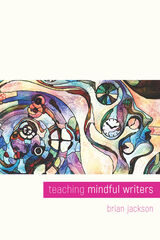
Teaching Mindful Writers introduces new writing teachers to a learning cycle that will help students become self-directed writers through planning, practicing, revising, and reflecting. Focusing on the art and science of instructing self-directed writers through major writing tasks, Brian Jackson helps teachers prepare students to engage purposefully in any writing task by developing the habits of mind and cognitive strategies of the mindful writer.
Relying on the most recent research in writing studies and learning theory, Jackson gives new teachers practical advice about setting up writing tasks, using daily writing, leading class discussions, providing feedback, joining teaching communities, and other essential tools that should be in every writing teacher’s toolbox. Teaching Mindful Writers is a timely, fresh perspective on teaching students to be self-directed writers.

Disruptive pedagogies for archival research
In a cultural moment when institutional repositories carry valuable secrets to the present and past, this collection argues for the critical, intellectual, and social value of archival instruction. Graban and Hayden and 37 other contributors examine how undergraduate and graduate courses in rhetoric, history, community literacy, and professional writing can successfully engage students in archival research in its many forms, and successfully model mutually beneficial relationships between archivists, instructors, and community organizations.
Combining new and established voices from related fields, each of the book’s three sections includes a range of form-disrupting pedagogies. Section I focuses on how approaching the archive primarily as text fosters habits of mind essential for creating and using archives, for critiquing or inventing knowledge-making practices, and for being good stewards of private and public collections. Section II argues for conducting archival projects as collaboration through experiential learning and for developing a preservationist consciousness through disciplined research. Section III details praxis for revealing, critiquing, and intervening in historic racial omissions and gaps in the archives in which we all work.
Ultimately, contributors explore archives as sites of activism while also raising important questions that persist in rhetoric and composition scholarship, such as how to decolonize research methodologies, how to conduct teaching and research that promote social justice, and how to shift archival consciousness toward more engaged notions of democracy. This collection highlights innovative classroom and curricular course models for teaching with and through the archives in rhetoric and composition and beyond.

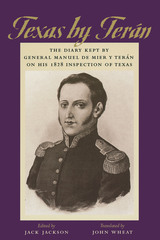
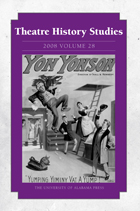
Theatre History Studies is a peer-reviewed journal of theatre history and scholarship published annually since 1981 by the Mid-American Theatre Conference (MATC), a regional body devoted to theatre scholarship and practice. The conference encompasses the states of Illinois, Iowa, Nebraska, Kansas, Missouri, Minnesota, North Dakota, South Dakota, Wisconsin, Indiana, Michigan, and Ohio. The purpose of the conference is to unite persons and organizations within the region with an interest in theatre and to promote the growth and development of all forms of theatre.
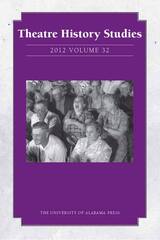
Penny Farfan / Victor Holtcamp / Lisa Jackson-Schebetta / Richard
L. Poole / Bill Rauch / Thomas Robson / Marlis Schweitzer / Virginia
Scott / Christine Woodworth
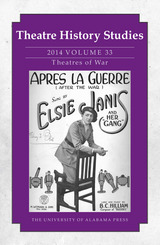
War and theatre is a subject of increasing popularity among scholars of theatre. The essays in this special edition of Theatre History Studies brings together a unique collection of work by thirteen innovative scholars whose work explores such topics as theatre performances during war times, theatre written and performed to resist war, and theatre that fosters and promotes war.
The contributors to this volume write poignantly about nationhood and about how war—through both propaganda and protest—defines a people. The contributors also delve into numerous fascinating themes that transcend time, peoples, nations, and particular conflicts: the foundations of nationalism and the concepts of occupied and occupier, nostalgia and utopia, and patriotism and revolution.
These essays survey a march of civil and international wars spanning three centuries. Arranged chronologically, they invite comparisons between themes and trace the development of the major themes of war. Ideas manifest in the theatre of one period recall ideologies and propaganda of the past, reflect those of the present, and anticipate wars to come.
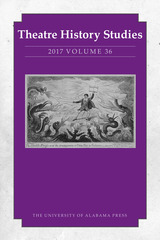
Theatre History Studies is devoted to research in all areas of theatre studies, with special interest in archival research, historical documentation, and historiography. Many issues feature a special section curated around a special theme or topic; for 2017 that special section focus on histories of new writing for the theatre.
Featured in THEATRE HISTORY STUDIES 2017, VOLUME 36
- “Resisting Arlecchino’s Mask: The Case of Marcello Moretti” by Gabrielle Houle
- “Making Space for Performance: Theatrical-Architectural Nationalism in Postindependence Ghana” by David Afriyie Donkor
- “Preparing Boys for War: J. M. Barrie’s Peter Pan Enlists in World War I’s ‘Great Adventure’” by Laura Ferdinand Feldmeyer
- “Not Just Rock ‘n’ Roll: Chicago Theatre, 1984–1990” by Julie Jackson
- “New Writing and Theatre History” by Sara Freeman
- “New Plays in New Tongues: Bilingualism and Immigration at the New Italian Theatre in France” by Matthew McMahan
- “The Waterloo Summer of the Prince of Wales’s Theatre: New Writing, Old Friends, and Early Realism in the Victorian Theatre” by Shannon Epplett
- “Chekhov’s Three Sisters: A Proto-Poststructuralist Experiment” by Sarah Wyman
- “Historicizing Shakesfear and Translating Shakespeare Anew” by Lezlie C. Cross
- “A New Noble Kinsmen: The Play On! Project and Making New Plays Out of Old” by Martine Kei Green-Rogers and Alex N. Vermillion
- “Making New Theatre Together: The First Writers’ Group at the Royal Court Theatre and Its Legacy Within the Young Writers’ Programme” by Nicholas Holden
- “New Writing in a Populist Context: A Play,a Pie, and a Pint” by Deana Nichols
- “American Playwriting and the Now New” by Todd London
- The Robert A. Schanke Award-Winning Essay: “Black Folk’s Theatre to Black Lives Matter: The Black Revolution on Campus” by La Donna L. Forsgren
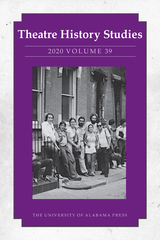
THEATRE HISTORY STUDIES, VOLUME 38
PART I: Studies in Theatre History
MATTHIEU CHAPMAN
Red, White, and Black: Shakespeare’s The Tempest and the Structuring of Racial Antagonisms in Early Modern England and the New World
MICHAEL CHEMERS AND MICHAEL SELL
Sokyokuchi: Toward a Theory, History, and Practice of Systemic Dramaturgy
JEFFREY ULLOM
The Value of Inaction: Unions, Labor Codes, and the Cleveland Play House
CHRYSTYNA DAIL
When for “Witches” We Read “Women”: Advocacy and Ageism in Nineteenth-Century Salem Witchcraft Plays
MICHAEL DENNIS
The Lost and Found Playwright: Donald Ogden Stewart and the Theatre of Socialist Commitment
Part II: HEMISPHERIC HISTORIOGRAPHIES
EMILY SAHAKIAN, CHRISTIANA MOLLDREM HARKULICH, AND LISA JACKSON-SCHEBETTA
Introduction to the Special Section
PATRICIA YBARRA
Gestures toward a Hemispheric Theatre History: A Work in Progress
ERIC MAYER- GARCÍA
Thinking East and West in Nuestra América: Retracing the Footprints of a Latinx Teatro Brigade in Revolutionary Cuba
ANA OLIVAREZ-LEVINSON AND ERIC MAYER-GARCÍA
Intercambio: A Visual History of Nuevo Teatro from the Ana Olivarez-Levinson Photography Collection
JESSICA N. PABÓN-COLÓN
Digital Diasporic Tactics for a Decolonized Future: Tweeting in the Wake of #HurricaneMaria
LEO CABRANES-GRANT
Performance, Cognition, and the Quest for an Affective Historiography
Part III: Essays from the Conference
The Robert A. Schanke Award-Winning Essay, from the 2019 Mid-America Theatre Conference
JULIE BURRELL
Reinventing Reconstruction and Scripting Civil Rights in Theodore Ward’s Our Lan’
The Robert A. Schanke Honorable Mention Essay, MATC 2019
MATTHEW MCMAHAN
Projections of Race at the Nouveau Cirque: The Clown Acts of Foottit and Chocolat
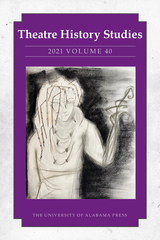
Introduction
—LISA JACKSON-SCHEBETTA, WITH ODAI JOHNSON, CHRYSTYNA DAIL, AND JONATHAN SHANDELL
PART I
STUDIES IN THEATRE HISTORY
Un-Reading Voltaire: The Ghost in the Cupboard of the House of Reason
—ODAI JOHNSON
Caricatured, Marginalized,
and Erased: African American Artists and Philadelphia’s Negro Unit of the FTP, 1936–1939
—JONATHAN SHANDELL
Stop Your Sobbing: White Fragility, Slippery Empathy, and Historical Consciousness in Branden Jacobs-Jenkins’s Appropriate
—SCOTT PROUDFIT
Asia and Alwin Nikolais: Interdisciplinarity, Orientalist Tendencies, and Midcentury American Dance
—ANGELA K. AHLGREN
PART II
WITCH CHARACTERS AND WITCHY PERFORMANCE
Editor’s Introduction to the Special Section
Shifting Shapes: Witch Characters and Witchy Performances
—CHRYSTYNA DAIL
To Wright the Witch: The Case of Joanna Baillie’s Witchcraft
—JANE BARNETTE
Nothing Wicked This Way Comes: Shakespeare’s Subversion of Archetypal Witches in The Winter’s Tale
—JESSICA HOLT
Of Women and Witches: Performing the Female Body in Caryl Churchill’s Vinegar Tom
—MAMATA SENGUPTA
(Un)Limited: The Influence of Mentorship and Father-Daughter Relationships on Elphaba’s Heroine Journey in Wicked
—REBECCA K. HAMMONDS
Immersive Witches: New York City under the Spell of Sleep No More and Then She Fell
—DAVID BISAHA
PART III
Essay from the Conference
The Robert A. Schanke Award-Winning Essay, MATC 2020
New Conventions for a New Generation: High School Musicals and Broadway in the 2010s
—LINDSEY MANTOAN
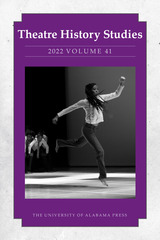
Theatre History Studies is the official journal of the Mid-America Theatre Conference, Inc. (MATC). The conference is dedicated to the growth and improvement of all forms of theatre throughout a twelve-state region that includes the states of Illinois, Iowa, Nebraska, Kansas, Missouri, Minnesota, North Dakota, South Dakota, and Wisconsin. Its purposes are to unite people and organizations within this region and elsewhere who have an interest in theatre and to promote the growth and development of all forms of theatre.
Published annually since 1981, Theatre History Studies provides critical, analytical, and descriptive essays on all aspects of theatre history and is devoted to disseminating the highest quality peer-review scholarship in the field.
CONTRIBUTORS
Angela K. Ahlgren / Samer Al-Saber / Kelly I. Aliano / Gordon Alley-Young / Melissa Blanco Borelli / Trevor Boffone / Jay Buchanan / Matthieu Chapman / Joanna Dee Das / Ryan J. Douglas / Victoria Fortuna / Christiana Molldrem Harkulich / Alani Hicks-Bartlett / Jeanmarie Higgins / Lisa Jackson-Schebetta / Erin Rachel Kaplan / Heather Kelley / Patrick Maley / Karin Maresh / Lisa Milner / Courtney Elkin Mohler / Heather S. Nathans / Heidi L. Nees / Sebastian Samur / Michael Schweikardt / Teresa Simone / Dennis Sloan / Guilia Taddeo / Kyle A. Thomas / Alex Vermillion / Bethany Wood

The official journal of the Mid-America Theatre Conference
Theatre History Studies (THS) is a peer-reviewed journal of theatre history and scholarship published annually since 1981 by the Mid-America Theatre Conference (MATC), a regional body devoted to theatre scholarship and practice. The conference encompasses the states of Illinois, Iowa, Nebraska, Kansas, Missouri, Minnesota, North Dakota, South Dakota, Wisconsin, Indiana, Michigan, and Ohio. The purpose of the conference is to unite persons and organizations within the region with an interest in theatre and to promote the growth and development of all forms of theatre. THS is a member of the Council of Editors of Learned Journals and is included in the MLA Directory of Periodicals. THS is indexed in Humanities Index, Humanities Abstracts, Book Review Index, MLA International Bibliography, International Bibliography of Theatre, Arts & Humanities Citation Index, IBZ International Bibliography of Periodical Literature, and IBR International Bibliography of Book Reviews. Full texts of essays appear in the databases of both Humanities Abstracts Full Text and SIRS.Along with book reviews on the latest publications from established and emerging voices in the field, this issue of Theatre History Studies contains three sections with fourteen essays total. In the general section, three essays offer an array of insights, methods, and provocations. In the special section on care, contributors capture their experience as scholars, humans, and citizens in 2022. In Part III, the 2022 Robert A. Schanke Research Award-winning paper by Heidi L. Nees asks historians to rethink Western constructions of time. Taken together, volume 42 captures how this journal serves theatre historians as scholars and laborers as they work to attend and tend to their field.
CONTRIBUTORS
Cheryl Black / Shelby Brewster / Matthieu Chapman / Meredith Conti / Zach Dailey / Michael DeWhatley / Whit Emerson / Katherine Gillen / Miles P. Grier / Patricia Herrera / Lisa Jackson-Schebetta / Nancy Jones / Joshua Kelly / Felicia Hardison Londré / Bret McCandless / Marci R. McMahon/ Tom Mitchell / Sherrice Mojgani / John Murillo III / Heidi L. Nees / Jessica N. Pabón-Colón / Kara Raphaeli / Leticia L. Ridley / Cynthia Running-Johnson / Alexandra Swanson / Catherine Peckinpaugh Vrtis / Shane Wood / Christine Woodworth / Robert O. Yates

Writing and recording are key cultural activities that allow humans to communicate across time and space. Whereas Old World writing evolved into the alphabetic system that is now employed around the world, the indigenous peoples in the Americas autonomously developed alternative systems that conveyed knowledge in a tangible medium. New World systems range from the hieroglyphic script of the Maya, to the figural and iconic pictographies of the Aztecs, Mixtecs, and Zapotecs in Mexico and the Moche in Peru, to the abstract knotted khipus of the Andes. Like Old World writing, these systems represented a cultural category that was fundamental to the workings of their societies, one that was heavily impregnated with cultural value.
The fifteen contributors to Their Way of Writing: Scripts, Signs, and Pictographies in Pre-Columbian America consider substantive and theoretical issues concerning writing and signing systems in the ancient Americas. They present the latest thinking about these graphic and tactile systems of communication. Their variety of perspectives and their advances in decipherment and understanding constitute a major contribution not only to our understanding of Pre-Columbian and indigenous American cultures but also to our comparative and global understanding of writing and literacy.
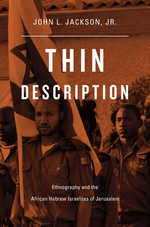
The African Hebrew Israelites of Jerusalem are often dismissed as a fringe cult for their beliefs that African Americans are descendants of the ancient Israelites and that veganism leads to immortality. But John L. Jackson questions what “fringe” means in a world where cultural practices of every stripe circulate freely on the Internet. In this poignant and sophisticated examination of the limits of ethnography, the reader is invited into the visionary, sometimes vexing world of the AHIJ. Jackson challenges what Clifford Geertz called the “thick description” of anthropological research through a multidisciplinary investigation of how the AHIJ use media and technology to define their public image in the twenty-first century.
Moving far beyond the “modest witness” of nineteenth-century scientific discourse or the “thick descriptions” of twentieth-century anthropology, Jackson insists that Geertzian thickness is an impossibility, especially in a world where the anthropologist’s subject is a self-aware subject—one who crafts his own autoethnography while critically consuming the ethnographer’s offerings. Thin Description takes as its topic a group situated along the fault lines of several diasporas—African, American, Jewish—and provides an anthropological account of how race, religion, and ethnographic representation must be understood anew in the twenty-first century lest we reenact old mistakes in the study of black humanity.

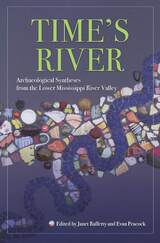
James Feathers, Gayle J. Fritz, Michael L. Galaty, S. Homes Hogue, H. Edwin Jackson, Jay K. Johnson, Carl P. Lipo, Hector Neff, Evan Peacock, Janet Rafferty, James H. Turner, John R. Underwood, Amy L. Young
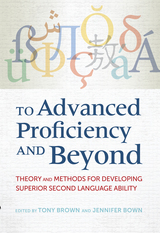
To Advanced Proficiency and Beyond: Theory and Methods for Developing Superior Second Language Ability addresses an important issue in Second Language Acquisition—how to help learners progress from Intermediate and Advanced proficiency to Superior and beyond. Due to the pressures of globalization, American society encounters an ever-increasing demand for speakers with advanced language abilities. This volume makes available cutting edge research on working memory and cognition and empirical studies of effective teaching. In addition it can serve as a practical handbook for seasoned and pre-professional instructors alike. The bringing together of the latest in second language acquisition theory, decades of empirical research, and practical classroom application makes for an unprecedented volume examining the achievement of Superior-level foreign language proficiency.
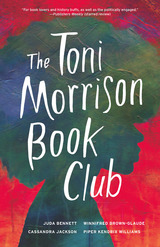
Framing their book club around collective secrets, the group bears witness to how Morrison’s works and words can propel us forward while we sit with uncomfortable questions about race, gender, and identity. How do we make space for black vulnerability in the face of white supremacy and internalized self-loathing? How do historical novels speak to us now about the delicate seams that hold black minds and bodies together?
This slim and brilliant confessional offers a radical vision for book clubs as sites of self-discovery and communal healing. The Toni Morrison Book Club insists that we find ourselves in fiction and think of Morrison as a spiritual guide to our most difficult thoughts and ideas about American literature and life.
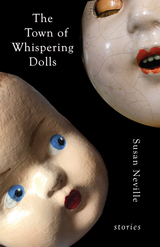
Stories haunted by the remains of the industrial Midwest, the opioid epidemic, and the technology of war
Located somewhere in the rust belt in the early twenty-first century, residents of the town of Whispering Dolls dream of a fabled and illusory past, even as new technologies reshape their world into something different and deeply strange. Dolls walk down the streets, cradling their empty heads and letting the wind turn them into flutes. A politician heads to Washington, DC, and leaves a toxic underground plume in his wake. A woman eats car parts instead of confronting the children who have forgotten her. A young woman falls in love with the robot who took her job at the candy factory.
In The Town of Whispering Dolls, it is usually the grandmothers and the children who grieve. Feeling invisible, in the story “Here,” a woman who has buried her children looks up at the sky where commercial and military jets fly overhead and tries to express her rage to the rich and powerful: “Keep flying above us in your planes. From one coast to the other, keep right on flying over us! We test your bombs and your beloved warriors. Here. Right here. Look down.”
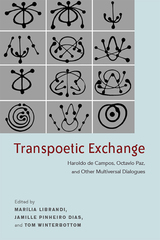
The volume is divided into three parts. “Essays” unites seven texts by renowned scholars who focus on the relationship between the two authors, their impact and influence, and their cultural resonance by exploring explore the historical background and the different stylistic and cultural influences on the authors, ranging from Latin America and Europe to India and the U.S. The second section, “Remembrances,” collects four experiences of interaction with Haroldo de Campos in the process of transcreating Paz’s poem and working on Transblanco and Galáxias. In the last section, “Poems,” five poets of international standing--Jerome Rothenberg, Antonio Cicero, Keijiro Suga, André Vallias, and Charles Bernstein.
Paz and Campos, one from Mexico and the other from Brazil, were central figures in the literary history of the second half of the 20th century, in Latin America and beyond. Both poets signal the direction of poetry as that of translation, understood as the embodiment of otherness and of a poetic tradition that every new poem brings back as a Babel re-enacted.
This volume is a print corollary to and expansion of an international colloquium and poetic performance held at Stanford University in January 2010 and it offers a discussion of the role of poetry and translation from a global perspective. The collection holds great value for those interested in all aspects of literary translation and it enriches the ongoing debates on language, modernity, translation and the nature of the poetic object.
Published by Bucknell University Press. Distributed worldwide by Rutgers University Press.
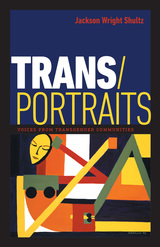
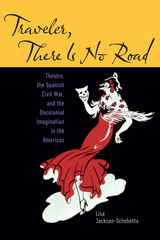
This book offers a unique perspective on 1930s theatre and performance, encompassing the theatrical work of the Cuban, Puerto Rican, and Spanish diasporas in the United States, as well as the better-known Anglophone communities. Jackson-Schebetta situates well-known figures, such as Langston Hughes and Clifford Odets, alongside lesser-known ones, such as Erasmo Vando, Franca de Armiño, and Manuel Aparicio. The milicianas, female soldiers of the Spanish Republic, stride on stage alongside the male fighters of the Lincoln Brigade. They and many others used the multiple visions of Spain forged during the civil war to foment decolonial practices across the pasts, presents, and futures of the Americas. Traveler conclusively demonstrates that theatre and performance scholars must position US performances within the Americas writ broadly, and in doing so they must recognize the centrality of the hemisphere’s longest-lived colonial power, Spain.
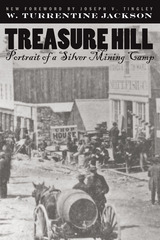


READERS
Browse our collection.
PUBLISHERS
See BiblioVault's publisher services.
STUDENT SERVICES
Files for college accessibility offices.
UChicago Accessibility Resources
home | accessibility | search | about | contact us
BiblioVault ® 2001 - 2024
The University of Chicago Press









